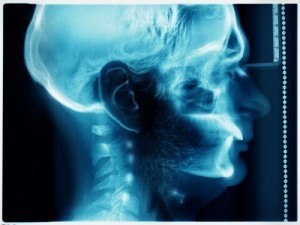With news breaking over the past several years that multiple current and former NFL players have been diagnosed with chronic brain disorders, the long-term effects of concussions have been on the forefront of public consciousness unlike ever before. The stories are sad: a player dedicates his life to mastering a craft and sacrifices his body to advance the interests of the team only to wind up with a chronic brain disease like chronic traumatic encephalopathy (commonly known as “CTE”). Fortunately for those of us lacking the physical gifts necessary to play professional football, CTE is not likely to darken our doorsteps. But that doesn’t mean concussions we may suffer are entirely free from long-term risk. One regrettably common lasting effect of a concussion is a disorder known as “Post Concussion Syndrome” or PCS.
Concussions Generally
A concussion is a type of mild traumatic brain injury (often called an “MTBI”). They can occur during aggressive contact sports, car accidents, or even during day-to-day life as the result of common accidents. The symptoms include confusion, headache, sensitivity to light and noise, dizziness, or even amnesia with respect to the cause of the MBTI. While the symptoms may hit immediately or be delayed for hours or even days, they typically resolve within a few days of onset.
What Is Post-Concussion Syndrome?
PCS is a collection of symptoms that may occur following an MTBI. Researchers have been unable to pin down the incidence rate of PCS; it may occur in anywhere from 30% of those who suffer MTBIs all the way up to more than 80%. Many symptoms are similar to those resulting from the initial MTBI, such as fatigue, irritability, or dizziness, but others are entirely unique. For example, those suffering from PCS  may experience severe depression, social withdrawal, or an inability to make even simple decisions. PCS may last anywhere from one week all the way up to several years depending on severity. In some cases, the effects of PCS last the injured person’s entire life, leaving them permanently disabled.
may experience severe depression, social withdrawal, or an inability to make even simple decisions. PCS may last anywhere from one week all the way up to several years depending on severity. In some cases, the effects of PCS last the injured person’s entire life, leaving them permanently disabled.
One of the problems in researching—and preventing—PCS is the difficulty in understanding exactly how and why the syndrome occurs. Researchers are split on whether the syndrome is the result of the actual injury—for example, an MTBI causing a structural problem in the brain—or whether the syndrome is the result of post-injury psychological factors—such as an emotional reaction to the traumatic event. Other researchers have proposed some combination of the two explanations. Notably, neurological scans of an injured person’s brain may come back normal despite the person having a firm diagnosis of PCS.
Treatment For Post Concussion Syndrome
The questions surrounding the biological reasons PCS occurs created an obstacle to developing effective, reliable treatment. When PCS was first observed back in the early 1900s, treatment consisted of rest and a congenial pat on the back. Those who didn’t get better were simply labeled “weak-willed” and discarded. As our collective understanding of psychiatry and medicine grew, however, practitioners began to realize PCS’s persistence was not the result of poor character. By the middle of the century, psychiatrists knew PCS had some deeper cause, but the biological mechanism driving the symptoms had yet to even be considered. In the second half of the century, we began to identify certain risk factors which would increase the likelihood of suffering PCS following an MTBI—including being knocked unconscious and having amnesia pertaining to the traumatic event.
Modern attempts at uncovering the biological mechanism driving PCS have been complicated by the fact that brain scans—such as MRIs—of those suffering from PCS often appear completely normal. Some researchers take this as evidence the syndrome is psychological, while others tout it as evidence the biological cause is only transient—meaning it is only present sometimes.
Against this backdrop of debate and confusion, treatment of PCS has varied wildly between healthcare providers. Commonly, primary care or other injury-specific doctors will recommend over-the-counter pain killers, like Motrin, either alone or in combination with prescription anti-depressants. Those treatments have been effective in managing—but not curing—individuals with PCS. Approximately 40% of cases nationwide are referred to psychiatrists or psychologists for further consultation. Among those individuals, treatment has included a range of psychological methods, including a process called cognitive restructuring. The goal of cognitive restructuring is to reattribute the patient’s experienced symptoms to normal causes. This is vitally important because one major complication of PCS is the development of hypochondria—anxiety and stress caused by a patient perceiving he or she has medical conditions he or she doesn’t actually have. Researchers have found that PCS patients dramatically underestimate how often they felt the milder PCS symptoms prior to their injury. When patients experience hypochondria as a result of PCS, they often misattribute pre-injury stressors to the injury itself, even when those stressors clearly occurred prior to the injury.
Other psychological treatment methods include “graded resumption of activity.” Graded resumption of activity involves clinically supervised, slow-paced return to daily activities, including work and recreation. This clinical management has been shown to reduce fatigue, improve poor concentration, and reduce cognitive inefficiency. As a result, patients are less likely to develop psychological problems including hypochondria and depression. Other patients have been treated effectively simply with education, encouragement, and talk therapy in combination with medication.
Whatever the prescribed course of treatment, the specter of lifelong disability remains. While there are effective treatments, studies have routinely shown that even with appropriate treatment patients may experience years-long symptoms. The only thing a PCS patient may know for sure is that he or she will likely require substantially more medical and psychological treatment than a person who suffered and MTBI but did not develop PCS.
If you or someone you love suffers an MTBI, you should reach out to an experienced personal injury attorney as soon as you are able. Should you or your loved one develop PCS, it will be very important to build and maintain proper medical records. An experienced personal injury attorney will be able to guide you through the process of obtaining records and documenting your symptoms and treatment. Without that guidance, you may find it very difficult to protect your rights and recover for your injuries.
Sources:
- “Post Concussion Syndrome Ebb and Flow: Longitudinal Effects and Management”
- “Are mild head injuries as mild as we think? Neurobehavioral concomitants of chronic post-concussion syndrome”
- “Post concussion syndrome”
- “Treatment of post-concussion syndrome following mild head injury”




